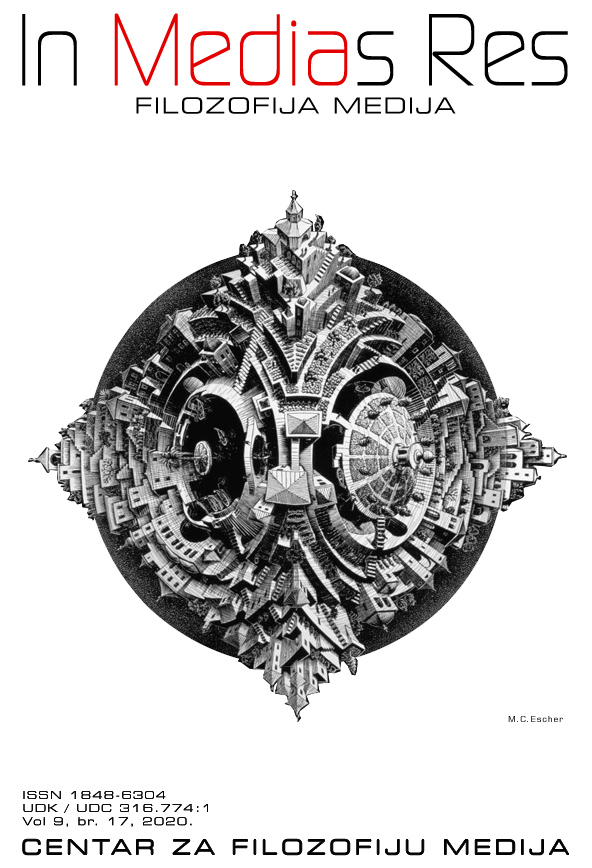Buntovništvo i nemogućnost komunikacijske društvene svijesti
The Rebellion and the inability to communicate Social Consciousness
Author(s): Dario TerzićSubject(s): Media studies, Social Philosophy, Communication studies, Theory of Communication
Published by: Centar za filozofiju medija i mediološka istraživanja
Keywords: communication; rebellion; resistance; disobedience; anarchism;
Summary/Abstract: Communication implies acceptance, rejection, understanding, disagreement, rebellion. We fight against arbitrariness. Even the first rebel, Prometheus, does not oppose all the gods, especially the nature and everything created. He opposes Zeus’s arbitrariness. „The rebellious man is“, says Albert Camus, „a man who says - no”. Rebellion can be metaphysical (Kain, De Sade), romantics, nihilists, surrealists, Striner, Nietzsche, historical (Spartacus, Bakunin, Marx, Lenin, Mussolini), artistic (Rimbaud, Van Gogh, Zolla, Mayakovsky, Brando). In the 1960s, the character of socially engaged rebels was emphasized. Kellner tells us about the “implosion of identity”, and in doing so implies situations in which identity is constructed using image and style. Hobbes, Locke, Habermas, Thorreau, Bey, Onfray, Passerin d’Entreves, Gibran and many others have contemplated and written about rebellion. The right of rebellion is not always understood as a general human right.
Journal: In Medias Res
- Issue Year: 9/2020
- Issue No: 17
- Page Range: 2621-2630
- Page Count: 10
- Language: Croatian

